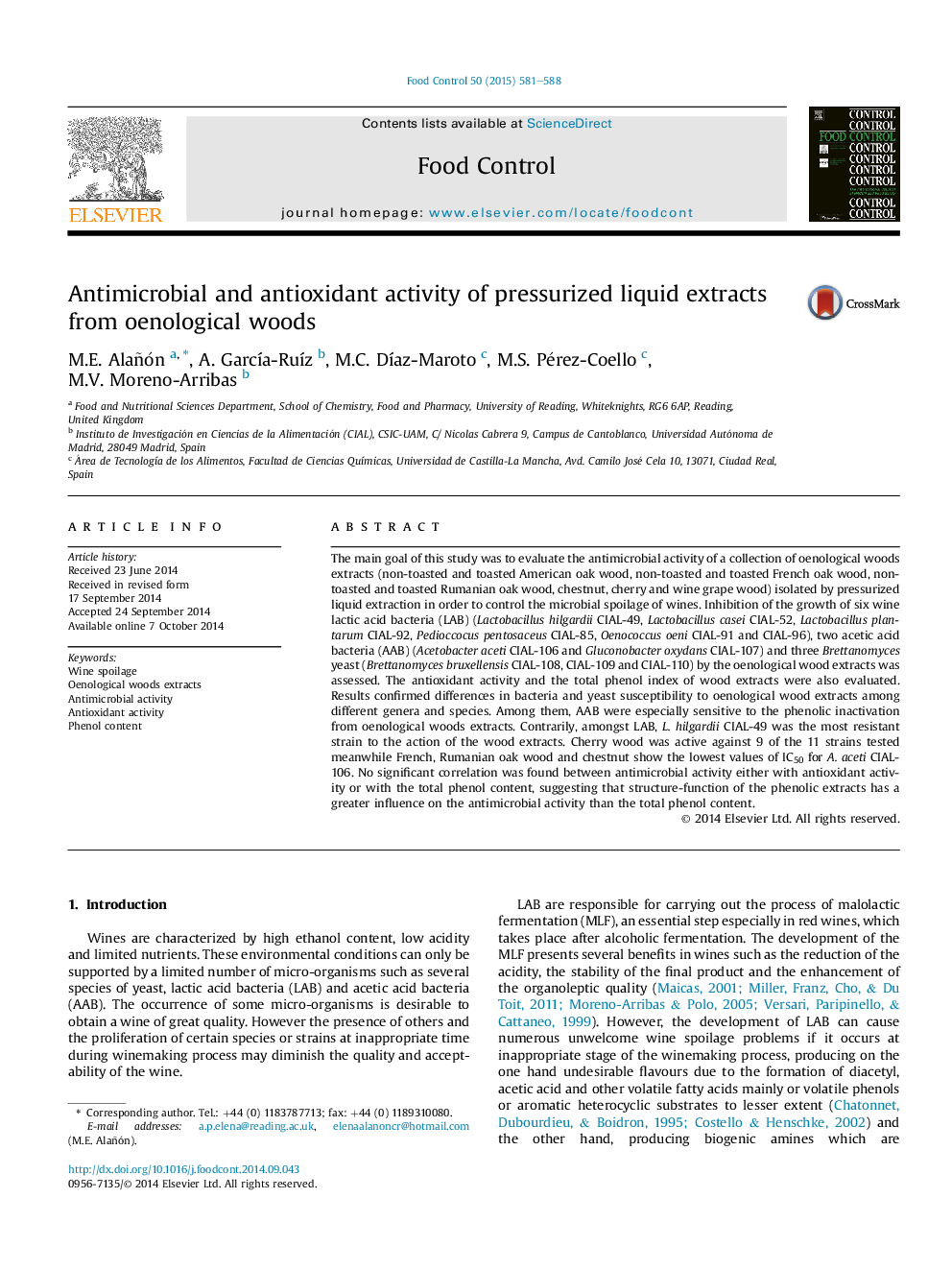| کد مقاله | کد نشریه | سال انتشار | مقاله انگلیسی | نسخه تمام متن |
|---|---|---|---|---|
| 6391102 | 1628412 | 2015 | 8 صفحه PDF | دانلود رایگان |
Highligts
- Oenological wood extracts were effective against the growth of acetic acid bacteria.
- The antioxidant activity of wood extracts were consistent with their phenolic content.
- No linear correlation was found between antibacterial and antioxidant activity.
- The structure-function of phenolic compounds has influence on the antimicrobial activity.
The main goal of this study was to evaluate the antimicrobial activity of a collection of oenological woods extracts (non-toasted and toasted American oak wood, non-toasted and toasted French oak wood, non-toasted and toasted Rumanian oak wood, chestnut, cherry and wine grape wood) isolated by pressurized liquid extraction in order to control the microbial spoilage of wines. Inhibition of the growth of six wine lactic acid bacteria (LAB) (Lactobacillus hilgardii CIAL-49, Lactobacillus casei CIAL-52, Lactobacillus plantarum CIAL-92, Pedioccocus pentosaceus CIAL-85, Oenococcus oeni CIAL-91 and CIAL-96), two acetic acid bacteria (AAB) (Acetobacter aceti CIAL-106 and Gluconobacter oxydans CIAL-107) and three Brettanomyces yeast (Brettanomyces bruxellensis CIAL-108, CIAL-109 and CIAL-110) by the oenological wood extracts was assessed. The antioxidant activity and the total phenol index of wood extracts were also evaluated. Results confirmed differences in bacteria and yeast susceptibility to oenological wood extracts among different genera and species. Among them, AAB were especially sensitive to the phenolic inactivation from oenological woods extracts. Contrarily, amongst LAB, L. hilgardii CIAL-49 was the most resistant strain to the action of the wood extracts. Cherry wood was active against 9 of the 11 strains tested meanwhile French, Rumanian oak wood and chestnut show the lowest values of IC50 for A. aceti CIAL-106. No significant correlation was found between antimicrobial activity either with antioxidant activity or with the total phenol content, suggesting that structure-function of the phenolic extracts has a greater influence on the antimicrobial activity than the total phenol content.
Journal: Food Control - Volume 50, April 2015, Pages 581-588
